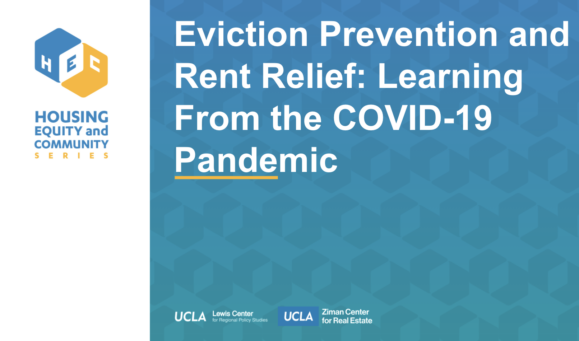
The COVID-19 pandemic triggered government intervention in the rental housing market at a scale not seen since World War II, with the goal of preventing evictions taking center stage. But while eviction moratoria were enacted at local, state, and national levels, protecting millions from disease and economic hardship, the policy response has not been without its shortcomings. For too long, tenants (and landlords) did not know whether rent would be forgiven or repaid, or who would be eligible for assistance. The eviction moratoriums have been extended at the last minute on several occasions, creating incredible uncertainty and fear for at-risk households. Rent relief has been distributed too slowly, with many not receiving the support they need.
Though the COVID-19 pandemic is not yet over, we can now look back on lessons learned. Join the Lewis Center, Ziman Center, and our guests for a conversation about the successes and failures of California’s response to the threat of evictions and housing instability. What worked, and what didn’t? And most importantly, how can we do better? Looking to the future, we’ll discuss many of the policies — right to counsel, just cause eviction protections, rental housing registries, direct rental assistance, and more — that might leave us better prepared for the next economic or social emergency.
Panelists:
- Moderator: Shane Phillips
- Francisco Duenas, Housing Now Coalition
- Stephanie Klasky-Gamer, LA Family Housing
- Ann Sewill, Los Angeles Housing and Community Investment Department



